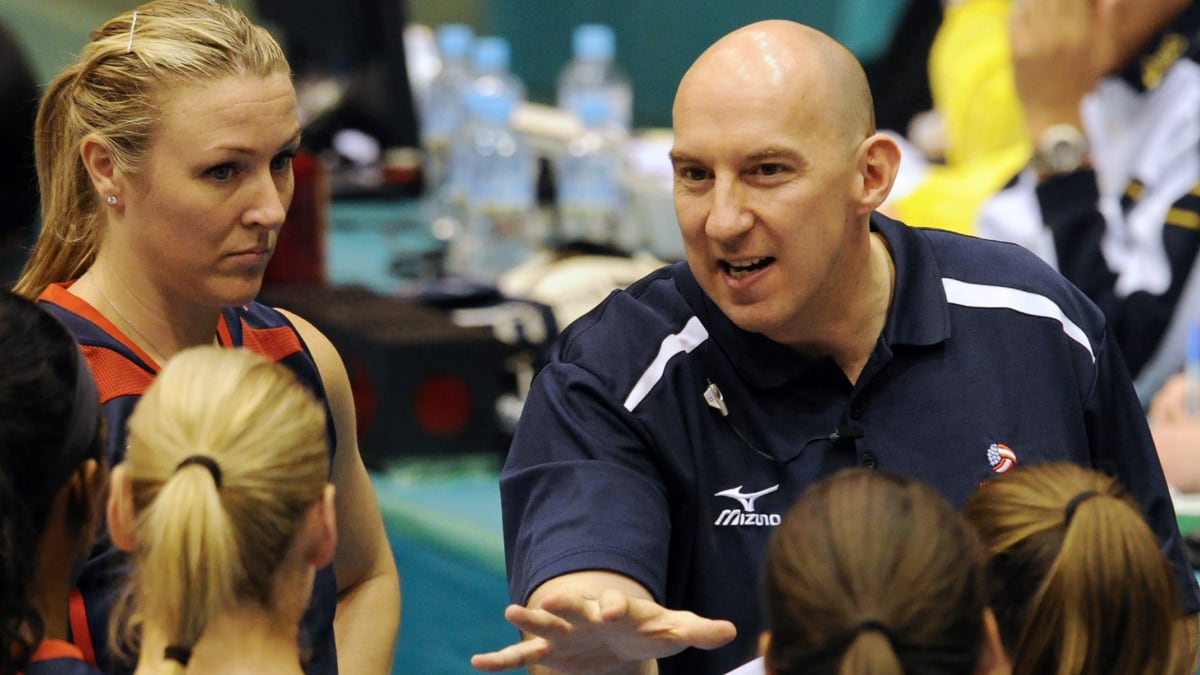The call came during his last practice before the Beijing Olympics.

The men of Coach Hugh McCutcheon’s U.S. volleyball team had scorched through the summer, winning their first World League championship and sweeping the qualifying matches for the 2008 games. After two decades without an Olympic medal, the squad was peaking, exactly as McCutcheon had planned. And then the call, like a plot twist in a bad novel: he learned that his father-in-law had been stabbed to death and his mother-in-law critically wounded as they walked the Chinese capital. The attacker, authorities said, had no apparent motive. McCutcheon’s wife had witnessed everything.
After taking a week off to be with his family, McCutcheon returned to the Games, clearly burdened by sorrow. But his equilibrium never seemed to falter. “Anger is not an emotion that I am allowing myself to indulge,” he said at the time. “At the end of the day, it happened and it seems the sooner we can come to grips with that and kind of process it the better off we’re going to be.” His team won gold some 10 days later.
Starting this Saturday in London, McCutcheon will try to duplicate that success with the U.S. women’s team, steering them with the same cold-gravy style that defined his triumph with the men. “That ability to stay composed,” he tells The Daily Beast, “that’s the difference between a great player and those who are merely good.”
For a long time, “merely good” has defined the women’s national volleyball team. Volleyball is as American as baseball. It was invented in Massachusetts in 1895, and by mid-century was free of its roots as a picnic sport, played only to pass the time between burgers and dogs. But despite hundreds of collegiate teams, and Olympic status since 1964, the women’s national team has never been great enough to win an Olympic gold medal. It is among America’s only teams without gold, often breaking down when it counted most—which is why McCutcheon was drawn to the challenge.
At 42, the native New Zealander is something of a coaching prodigy. He played college ball at Brigham Young University, and had a short professional career before turning to the bench, where in less than a decade he has risen from unpaid assistant to Olympic savior. McCutcheon’s women, like his men before them, are going into the Games as the hottest team in the world, having notched wins in 2011 over seven Olympic qualifiers—including Brazil, the country that beat them for the gold in 2008. If McCutcheon triumphs in London, he’ll make U.S. volleyball history as the only coach to medal with both the men’s and the women’s teams.
But don’t expect him to be very reflective about his efforts. “We’re going to play the best we can,” McCutcheon says of his plans for London, “and hope that’s enough to win.” His response to the fact that some of indoor volleyball’s most promising players have defected to the more lucrative beach game? “More power to them.” His thoughts on the controversial practice of female players wearing hot pants when the men wear normal shorts? “Those are the rules.” Of the family tragedy in 2008: “What’s done is done.”
One might want to ask him about the origin of some of volleyball’s surprising slang—the phrase “facial disgracial” is defined in the women’s official media guide—but really, what’s the point? As the writer David Foster Wallace once observed, the muted, cliché-laden language of top athletes, and for that matter top coaches, may be the very secret of their success, a reflection of the emotional blankness that allows them to perform in the face of pressure and distraction that would flatten a more self-conscious soul. If so, then McCutcheon is indeed genius. Since the last Olympics he’s become a father of two, with his second child born in April, just ahead of Olympic crunch time. His reflections on being a dad: “It’s great.”
Deeper emotion is there, of course, but it’s rarely on display. One exception came moments after McCutcheon won gold in Beijing. He jogged into a tunnel, where he got another call, this time from his wife. “You won! You won! You won!” she screamed. He crumpled, and cried, but only for a moment. Soon he was on the medal stand, where he hopes to be again this summer, his back straight, his eyes clear.






